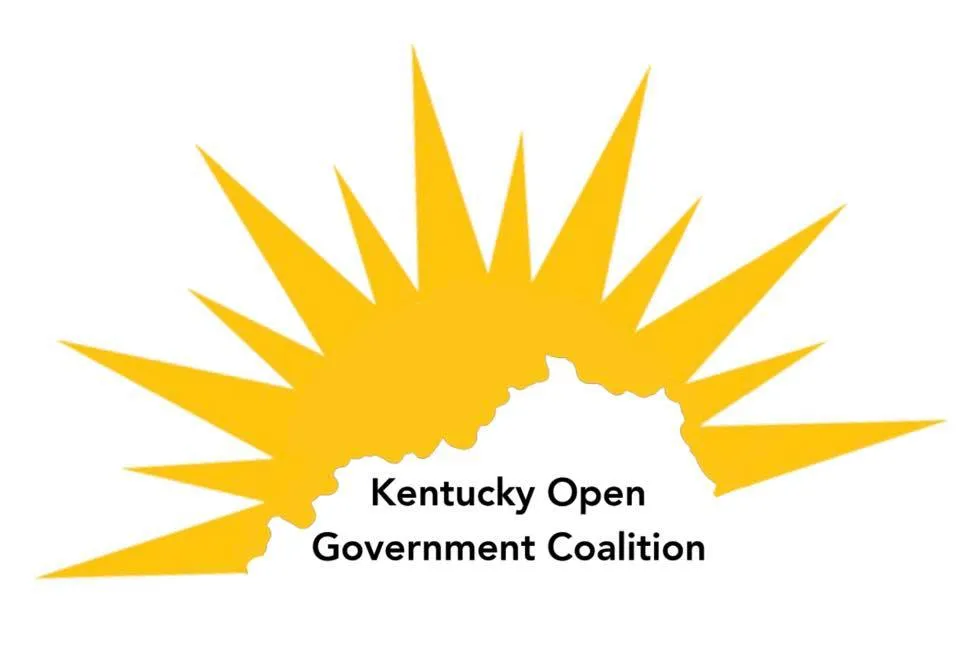The central theme in 2023 was the continuing role of the courts in safeguarding rights guaranteed under Kentucky’s open government laws. For nearly every public agency abuse of the open records and open meetings laws, there was an equal and opposite judicial repudiation. Whether the abuse resulted from ignorance of, or contempt for, the laws, Kentucky’s courts remained the bulwark against public agency and public official affronts to Kentuckians’ statutorily guaranteed “right to be informed what their government is doing.”
Here are the Coalition’s Top Ten Open Government Stories of 2023.
1) Kentucky Attorney General engages in violation of the open records law over a period of three-and-a-half years
An open records dispute that commenced in July 2020 with the submission of a request to the Office of the Kentucky Attorney General for records relating to the Kentucky Absentee Ballot Integrity Task Force by the “nonprofit, nonpartisan watchdog” American Oversight, culminated in a strongly worded Franklin Circuit Court opinion issued on July 14, 2022, holding that the OAG committed multiple open records violations.
Although the Attorney General did not appeal the Franklin Circuit Court’s opinion, he and his staff continued to obfuscate – delaying production of all responsive records and necessitating multiple trips back to court.
In July, 2023, the court authorized American Oversight “to conduct depositions of the designated representative(s) of OAG to address any factual disputes that remain unresolved regarding compliance with the prior Orders of this Court, including the scope of the OAG’s original and supplemental searches for the requested documents.”
“It appears,” the court observed, “that there continues to be a dispute as to whether the Attorney General has produced all documents and records that are required to be produced under the Open Records Act.”
The three-and-a-half year old case, we are advised, is moving toward settlement.
American Oversight v Office of the Attorney General is a reminder that the Office of the Attorney General enjoys no special privilege under Kentucky’s open government laws. Its resolution by settlement is lamentable only to the extent that critical issues it presents – in particular, the adequacy of the agency’s search for records – must await future opportunities for appellate review.
2) Louisville Metro’s track record on open records and open meetings compliance deteriorates
Secret police chief searches; nondisclosure agreements; closed collective bargaining negotiations with the Fraternal Order of Police; multiple adverse Attorney General’s open records decisions based on arbitrary delays in records production; and revelations that the backlog of open records requests has more than doubled in year one.
Extensive reporting on these affronts to transparency dashed any hope for measurable improvement in open records and open meetings compliance in the first year of Louisville Mayor Craig Greenberg’s administration.
Greenberg repeatedly claimed that he was constrained by the open records and meetings laws to conduct a secret police chief search and to engage in closed collective bargaining sessions with the Fraternal Order of Police. He lamented the open records backlog, but gave no indication he was willing to expand efforts beyond those that had thus far failed.
As the Kentucky Open Government Coalition observed, “The fault, Mayor Greenberg, is not in the law but in the choices you made.”
3) Kentucky Supreme Court will decide the scope of public access to law enforcement records in open investigations
In November 2022, the Court of Appeals ruled that “[G]eneral allegations of potential harm which would seem to apply in any criminal investigation are not sufficient to justify wholesale denial of an open records request for records relating to an open investigation.”
The underlying case, Courier Journal Inc. v Shively Police Department, resulted from the denial of a request for records relating to a high speed chase that ended in the deaths of a woman, her son, and a baby. In it, the court reaffirmed longstanding interpretation of the “law enforcement” exception to the open records law, KRS 61.878(1)(h), requiring proof of actual, concrete harm to an open investigation from premature disclosure of records compiled by a law enforcement agency to justify nondisclosure.
But the court went a step further.
The unanimous appellate panel expressly rejected broad application of KRS 17.150(2) “to restrict all access to information which law enforcement has which may pertain to a prospective law enforcement action,” observing that past opinions of the Attorney General and arguments advanced by law enforcement agencies “are not controlling, and we disagree with such an interpretation based on the statutory language.”
In January 2023, Shively asked the Kentucky Supreme Court to review the opinion of the Court of Appeals. On August 16, the Court granted Shively’s request. The parties subsequently briefed the case, and amicus briefs were filed – one in support of the Courier Journal's position by retired Jefferson Circuit Court Judge John Potter and the Kentucky Open Government Coalition and another in support of the Shively Police Department by the Kentucky Attorney General.
Oral argument in the Supreme Court, and final resolution of this controversial issue, is anticipated in 2024.
4) League of Women Voters report exposes legislative schemes undermining participatory democracy
On November 29, the League of Women Voters of Kentucky published a study examining “Transparency and Citizen Participation in Kentucky’s Legislative Process” and asking the recurring question, “How Can They Do That?”
A League task force “reviewed provisions of the Kentucky Constitution, the House and Senate Rules, and the legislative record for all bills that became law during the seven 60-day legislative sessions: 1998, 2002, 2006, 2010, 2014, 2018, and 2022,” identifying the “procedures that make it increasingly difficult for citizens to be informed and active participants in legislation.”
Data analysis substantiated the threat to participatory democracy and legislative accountability in the Commonwealth of current General Assembly practices.
It is a threat that the Kentucky Open Government Coalition has condemned since the Coalition’s creation in 2019.
Adding insult to injury, in early December the Kentucky Lantern reported on a little noticed statute enacted in 2022 that eliminated the legislative process for pre-filing bills.
HB 10 “amended KRS 7.090 to remove the ability of interim joint committees to pre-file bills [and] repealed KRS 6.245, relating to pre-session filing of bills.”
This, coupled with the League’s findings and a 2021 law excluding the General Assembly and the Legislative Research Commission from the open records law, eliminated the last vestige of Kentucky lawmakers’ accountability to the constituents they serve.
In a Facebook post, the Kentucky Open Government Coalition highlighted an example of an ill-conceived pre-filed open records bill from 2019 that was wisely withdrawn as a result of stakeholder input. No more.
“HB 10,” we concluded, “was clearly intended to eliminate the public’s voice at a critical stage in the evolution of a bill.”
5) Court of Appeals resolves public discussion on private devices dispute in favor of public access – but litigation continues
Open government advocates celebrated an October 27 opinion of the Kentucky Court of Appeals declaring that “[electronic] messages stored on personal cell phones are public records when such messages are prepared by or used by the members of the Commission and relate to or concern Commission business.”
The court’s opinion in Kentucky Open Government Coalition v Kentucky Department of Fish and Wildlife Resources Commission turned on the expansive statutory definition of the terms “public record” and “public agency,” and on its rejection of the Commission’s privacy and undue burden arguments. But at a basic policy level, the opinion emphasized:
“To hold otherwise would certainly defeat the underlying purpose of the Open Records Act, as public officials could easily evade disclosure of public records by simply utilizing their personal cell phones.”
To “assuage any concerns the Kentucky Open Records Act requires public agencies to turn over private cell phones” or mandates wholesale disclosure of “all public records generated on private cell phones or private email accounts,” the court emphasized that the opinion “merely holds that ‘text messages [or emails] related to Commission business and stored on personal cell phones [or personal email accounts] of its members are public records generally subject to disclosure under the Open Records Act absent an applicable exception.’”
The Coalition’s celebration was short-lived.
Despite the court’s assurances – and the logic of its analysis – the Commission petitioned the Supreme Court for discretionary review of the opinion of the Court of Appeals on November 22. The Court has not yet ruled on the Commission’s petition.
In the meantime, public officials across the Commonwealth continue to exploit the resulting legal chaos.
--30--
Part two of this list will be published tomorrow.








